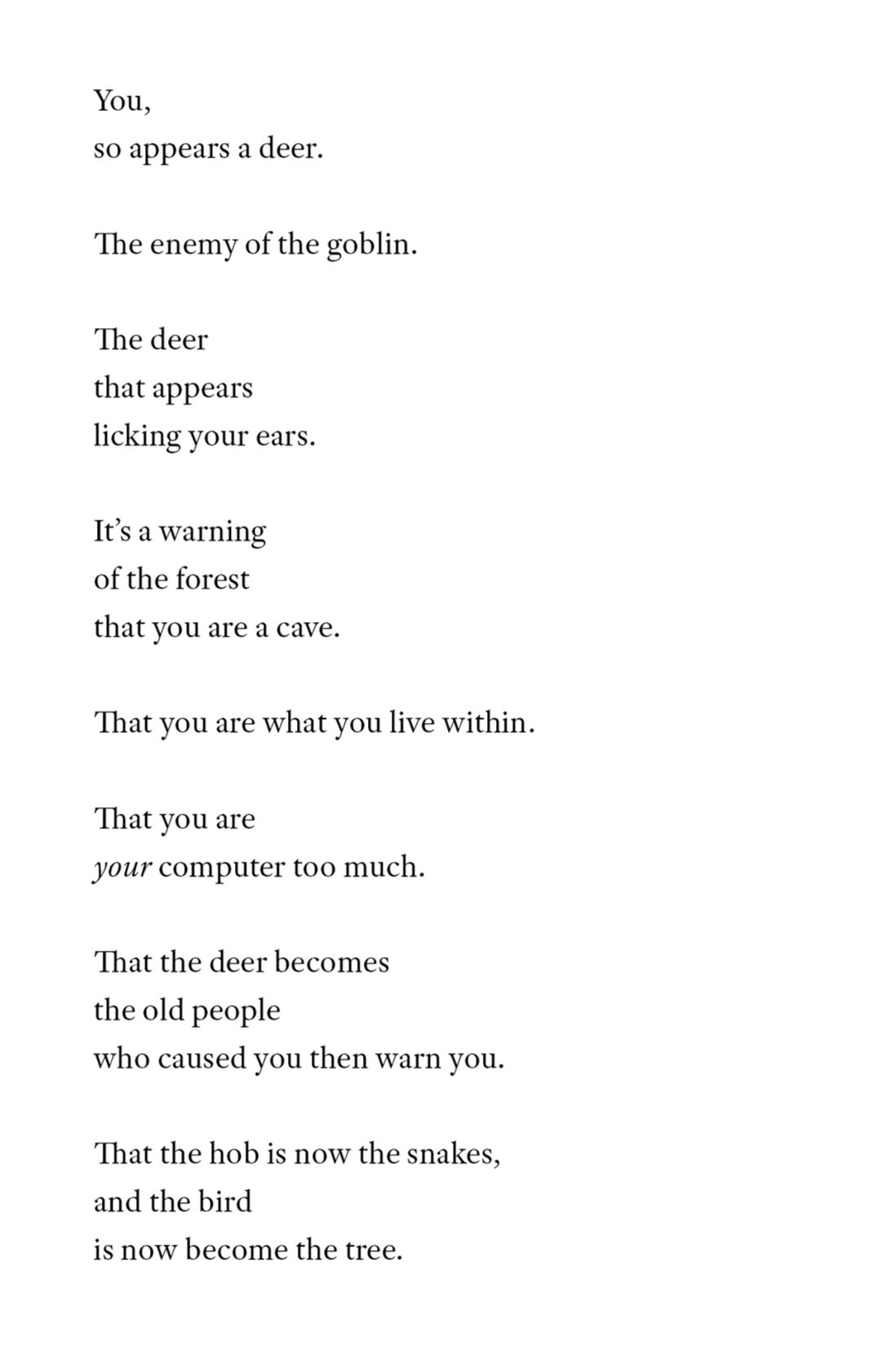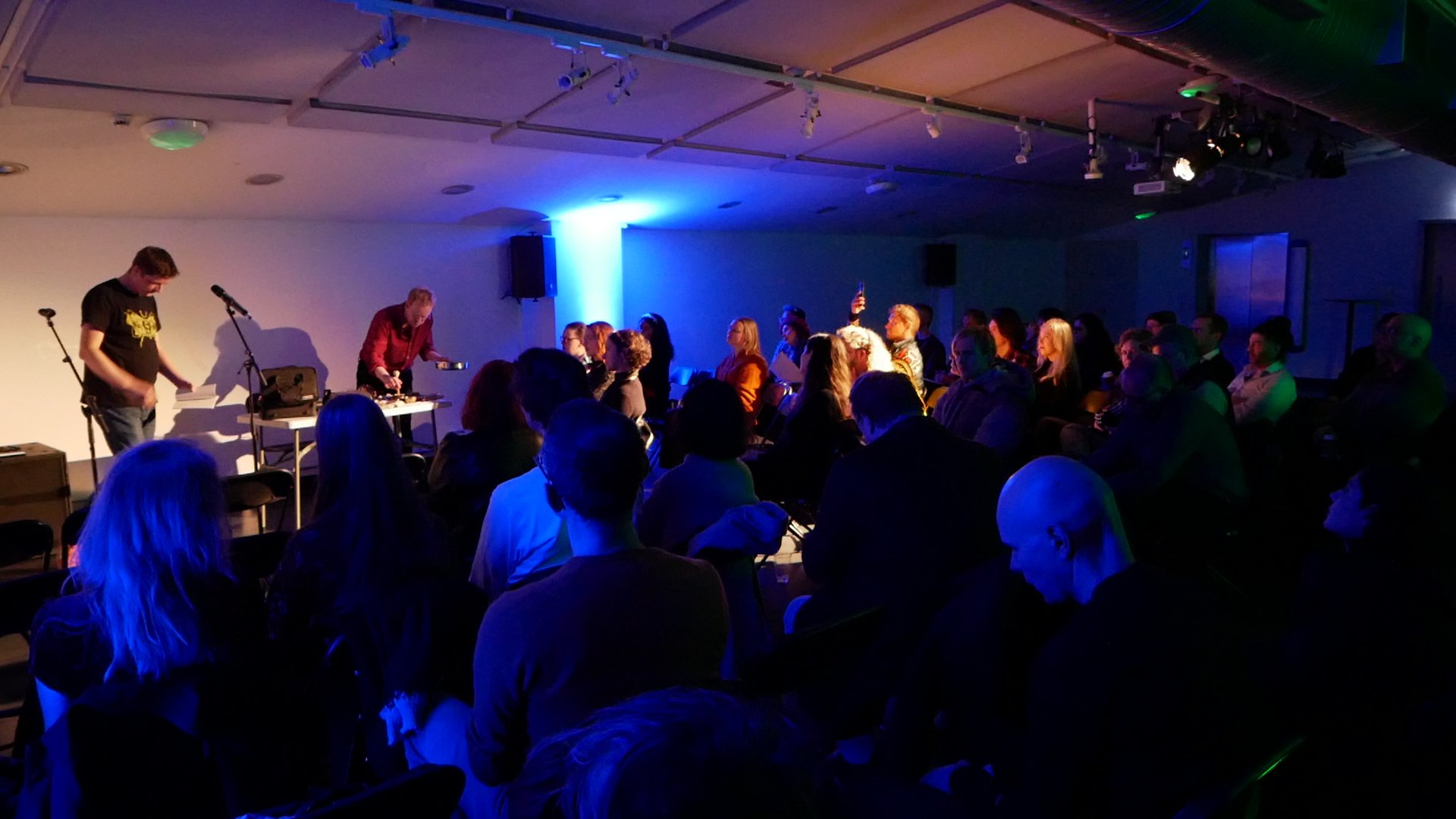…. The bed of poetry your conventional expectation seeks is absent and intimations of mortality eclipse any sense of sunrise. The perfect rigid frame of those old habits are left staggering around as symbols of death and emptiness. It’s a new form of the sublime and is how art can focus on what’s cancelled. This is difficult and complicated art. The poets hover eccentrically around ordinarily solid figures of speech and behaviour. They perform an image of writing that probes whilst remaining spirals of periphrastic and obscure transparencies. They confront a hostile world by posing the book in the book, the poem in the poem, the object in the object, the form in the form, the life in the life and on and on like everything they do are versions of burial grounds where, nevertheless, something hopeful is about to happen.
… Their dramas all break down any provisional artistic optimism and so there’s a helplessness expressed directly in counter-images, lurking convictions that transcendent values are lost or that discourse about a discourse that can’t exist is just a nasty infectious malaise. The sheer naked engagement with this as the basal ground of poetry makes them consummate and necessary and urgent for these dark times.
Why don’t they offer anything more than just the possibility, that notion of ‘I can’t go on, I go on,’ so familiar and almost a cliché in Beckett? Well, they all place limits (in very different ways) on poetry. All they can do is present the starting point of the activity. They provide oblique literal and allegorical structures so attempts are suggested but not directly described, whilst what we are given seem like rehearsals of those terrible, obscure initial conditions. So there are mysteries but never directly expressed. We’re forced into a condition of enjoyable exasperation like we’ve been seduced, refused and offered no consolation and all we do is scream and agonise over what might have been alone. It’s a heady, unmissable show.







































